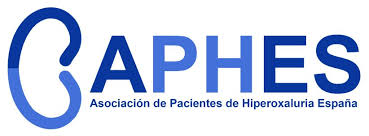Children’s Series
The PH1 of Kind video series is an incredible resource. Meet Isabelle, Luuk, Asha, and Will — kids from around the world who have been diagnosed with Primary Hyperoxaluria Type 1, as they experience a range of situations and cope with emotions as a result of their condition. All videos are also available in Spanish, Dutch, Arabic, or Italian.
These videos bring kids into a world with imaginary and creative friends who are talking about all the things they are going through in a very fun and entertaining way. It reduces the isolation that kids might feel and gives them tools to communicate with their friends and family!

Isabelle’s Story: Living With PH1
Asha’s Story: Learning About Doctor’s Visits
Will’s Story: Learning To Be Confident
Luuk’s Story: Learning to Stay Positive
OHF Care Centers
Every single person living with Hyperoxaluria deserves the best care possible. It is important that families know who is in charge of delivering the care they need and understand what centers are providing optimal, standardized care and services in agreement with the OHF’s guidelines.
The OHF Care Centers Program is a growing network, visit the centers here.
Patient Assistance Programs
When health insurance falls short, the OHF partners with remarkable organizations to assist adults and children financially. This support can help cover the cost of prescription drug coinsurance, copayments, deductibles, health insurance premiums, and other selected out-of-pocket healthcare expenses.
Key Hyperoxaluria Resources
Tests for Diagnosis
When you or your health care provider suspect Hyperoxaluria, it’s time to get tested. Early diagnosis and management may reduce damage to your kidneys and overall health.
Renal Imaging
Two imaging tests for kidney stones are a CT scan which uses X-rays to picture the kidneys and an ultrasound which uses sound waves to get a picture of the kidney.
Blood Tests
Glomerular Filtration Rate (GFR) measures how well the kidneys are removing wastes and excess fluid from the blood.
Plasma Oxalate
If kidney function is reduced, this test monitors the body pool size of oxalate in patients.
24 Hour Urine Test
Measures elevated oxalate levels to determine if you have signs of Hyperoxaluria.
No Charge Genetic Testing
Can establish a Primary Hyperoxaluria (PH) diagnosis with precise accuracy. The test is simple and eligible patients can be screened anywhere in the world. If you have a family history of PH, siblings and family members can also be screened. It’s that easy. To learn more, email Julie at Julieb@ohf.org.
Based on the outcome of your tests, your healthcare provider will determine whether your diagnosis is Primary, Enteric or Dietary Hyperoxaluria.
Externally- Led Patient Focused Drug Development (EL-PFDD) Meeting for Primary Hyperoxaluria (PH) – Voice of the Patient Report
On October 5th 2020, the OHF EL-PFDD meeting brought together patients and their care-partners, representatives from the U.S. Food and Drug Administration (FDA), pharmaceutical companies interested in developing drugs for the disease, and doctors who are experts in the particular disease- all to hear from patients living with PH. In this meeting, the patient’s experience was brought to the forefront for the FDA and pharmaceutical companies to understand.
“The approval of Oxlumo represents a great triumph of community involvement to address a rare disease. It is a result of input from patients, treating physicians, experts and sponsors at a patient-focused drug development meeting and through other collaborative efforts,”
-Norman Stockbridge, M.D., Ph.D., director of the Division of Cardiology and Nephrology in the FDA’s Center for Drug Evaluation and Research.




